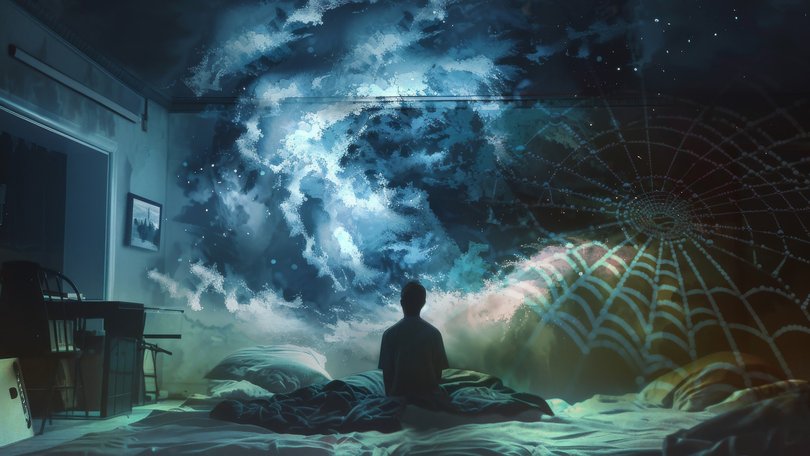ANDREW MILLER: Why the workings of tiny spiders are just as miraculous as the rest of the universe

We are all of us just weaving webs, and trying to keep them untangled.
What were you going to do with that unfathomable lottery jackpot? We were never going to win, of course, that only happens to other people.
Back in reality it’s 3am, and the rare and ancient rain is suddenly falling hard, like in Blade Runner. The noise of it returning to earth turns the dry night world subtly upside down. Under the sensible, insightless light of day, we think nothing is strange about water dropping from the sky, but in the early hours of morning we drop the pretence of understanding, and wonder again, like a child.
Sign up to The Nightly's newsletters.
Get the first look at the digital newspaper, curated daily stories and breaking headlines delivered to your inbox.
By continuing you agree to our Terms and Privacy Policy.Most of our water landed on earth during the Late Heavy Bombardment, about 4 billion years ago, hitchhiking on asteroids and meteorites after the solar nebula collapse. Ever since, it just cycles constantly, from ocean to sky and back again.
Its distribution varies — as we heat the atmosphere, water is escaping from polar icecap storage, making the oceans rise, and during longer, harder droughts life will move to less desiccated areas.
This non-autumn has left the sand as dry as cardboard packet chicken-noodle soup, so the brief night rain is welcome. I have forgotten how to sleep — apparently I have thoughts that need thinking.
When you imagined winning that lottery, did your mind run first to a luxury home, or to people who need help? Laying in my imaginary bed of cash I like to think I am a good person, but my giving rarely involves much sacrifice. I’d probably fully kit out that nice house and garage, and then donate some morsels.
Outside my window is a cluster of spiders, engineering large strong webs to house their families, day and night. Our telescopes search space for extra-terrestrial life, but we ignore strange things in our own backyards. The aliens may have heard rumours of extinctions on earth, and are wisely laying low.
Our cluster of beautiful Golden Orb Weaving spiders live in two large yucca trees. Fifteen or more females scuttle along the shiny cables, harvesting insects, sometimes larger than their own olive-sized abdomens. As my Mum would say, their eight eyes are bigger than their stomachs. They wrap leftovers in hanging pantries — packets of protein for midnight snacks. The comparatively tiny male spiders are good for one round of fertilisation, and then they are also on the menu.
There are melodramatic online videos showing skies full of these spiders overshadowing Australian backyards — mini horror movies starring creatures that have mild venom and no malice. Being scared of things that cannot hurt us helps us to ignore the things that can.
Those yucca trees are in the wrong place for humans — they are damaging my precious boundary wall - but I did not have the courage to broach this with the spiders until the other night. They usually just ignore the shy grunts of someone with only two dim-blinking eyes, who cannot even spin a web or climb.
Daytime me had accepted a usurious quote from a winking, leathery old tree guy, but in the deep of the night I am still not on board with evicting our Golden Orb tenants.
I told the spiders I was sorry the implied promise of security in our trees was temporary at best. They stayed silent, so I said, “The bushland over there might be an option. . . this rain is good, ay?”
I told them about my insomnia, and that I thought they were lucky to live in a less complicated world — without lotteries, properties, wars, and a lifestyle of increasing consumption damaging the global climate.
“No cost of living for spiders,” I said. “Anyway, sorry about the yuccas.”
They replied “no-one likes a species that feels sorry for itself,” without interrupting their weaving.
Perhaps the key to good sleep is simplicity.
I’ll probably pop in and grab a Lotto ticket in the morning.
